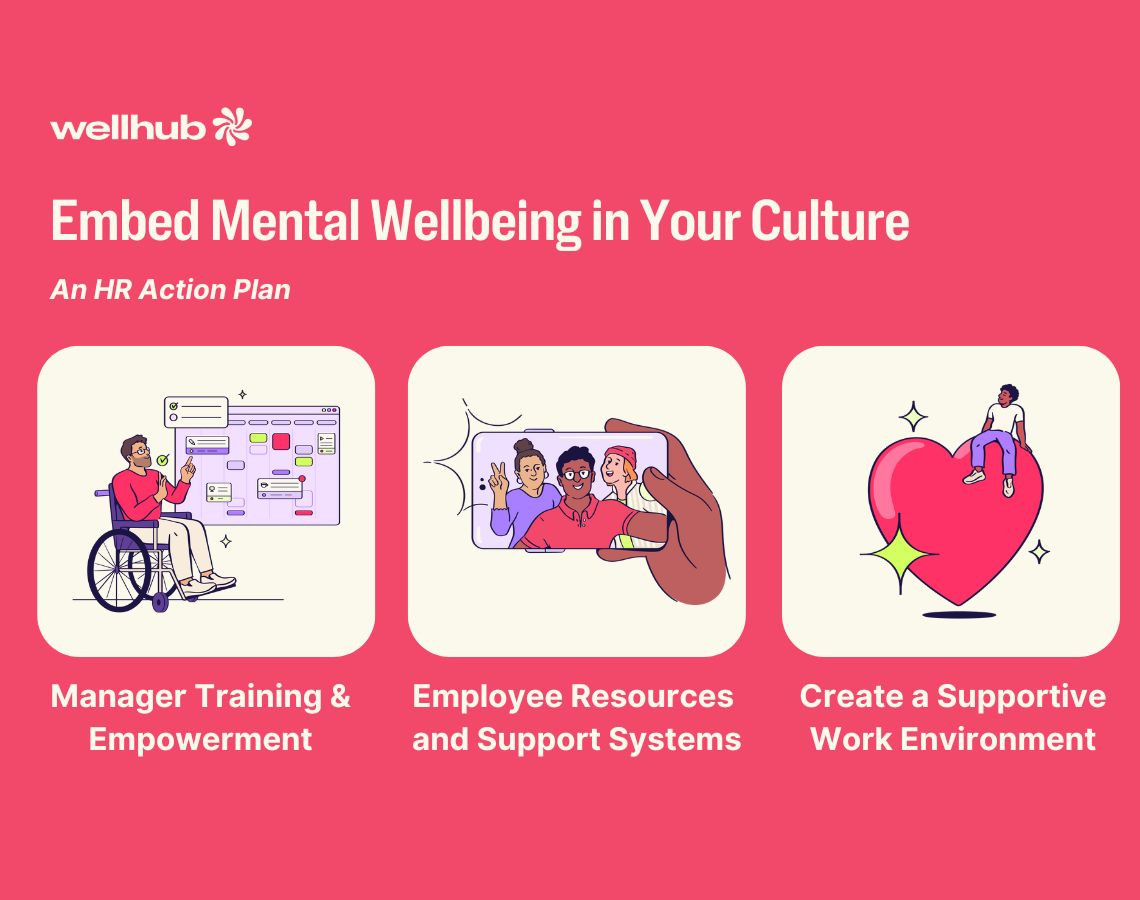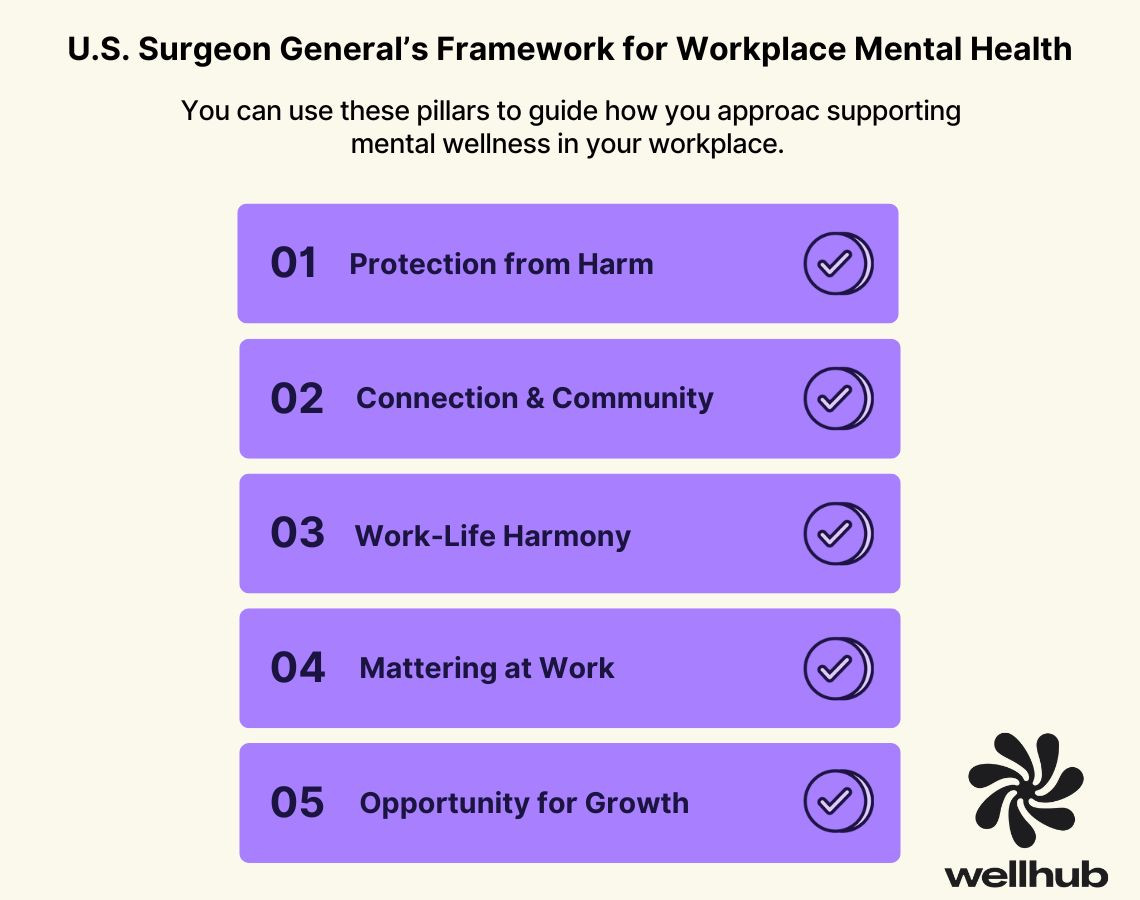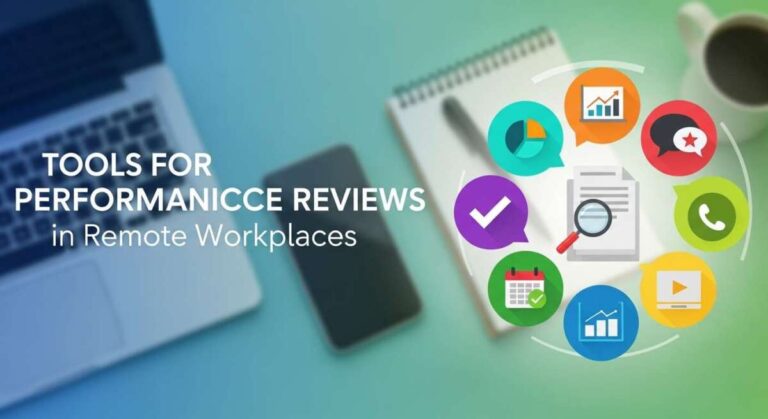Working remotely offers you flexibility, but it can also bring challenges that affect your mental health. You might feel isolated, overwhelmed, or struggle to separate work from personal life.
The good news? There are tools designed specifically to support your mental well-being while working from home. You’ll discover simple yet powerful resources that help you stay connected, manage stress, and create healthy routines. Keep reading to find out how you can take control of your mental health and thrive in your remote workplace.

Credit: wellhub.com
Remote Work Challenges
Remote work offers flexibility and comfort but brings unique mental health challenges. Many employees face difficulties that affect their wellbeing and productivity. Understanding these challenges helps employers and workers find better support tools. Stress, loneliness, and blurred boundaries are common issues in remote workplaces.
Isolation And Loneliness
Working remotely often means less face-to-face interaction. This can lead to feelings of isolation and loneliness. Without casual office chats or team lunches, employees may feel disconnected. Social isolation impacts mood and motivation. It lowers engagement and increases stress levels. Tools that encourage virtual socializing and regular check-ins help reduce loneliness.
Blurring Work-life Boundaries
Remote work blurs the line between home and office. Many struggle to switch off after work hours. This leads to working longer and feeling always “on.” Without clear boundaries, stress rises and relaxation drops. Creating set work hours and dedicated workspaces can help. Tools that remind workers to take breaks or end the day support a healthy balance.
Managing Stress And Burnout
Stress builds quickly in remote roles without proper support. Burnout occurs from constant work pressure and lack of downtime. Remote workers may hide their struggles due to stigma or distance. Mental health tools offer stress management resources and access to counseling. Encouraging open conversations about mental health reduces burnout risks. Regular breaks and mindfulness practices also improve wellbeing.
Essential Mental Health Tools
Essential mental health tools help remote workers stay balanced and focused. They provide support and reduce stress. These tools make it easier to manage emotions and maintain well-being.
Remote work can feel isolating. Having access to mental health resources is key. The right tools offer easy ways to connect with professionals and manage daily challenges.
Virtual Therapy Platforms
Virtual therapy platforms connect users with licensed therapists online. They offer video, phone, or chat sessions. This flexibility suits busy remote workers. Therapy helps process emotions and develop coping skills. Many platforms provide privacy and convenience. Users can schedule sessions around their work hours.
Employee Assistance Programs
Employee Assistance Programs (EAPs) provide confidential counseling and support services. Employers often offer EAPs as part of benefits. They help with stress, anxiety, and personal issues. EAPs may include crisis support and referrals. These programs encourage workers to seek help early. They improve overall workplace mental health.
Mental Health Apps
Mental health apps offer tools for mindfulness, meditation, and mood tracking. Many apps include guided exercises to reduce stress. They fit easily into daily routines. Apps remind users to take breaks and practice self-care. Some provide peer support or journaling features. These apps empower workers to manage their mental health anytime.
Creating Structured Routines
Creating structured routines helps remote workers maintain mental health. A clear routine builds stability and reduces stress. It separates work from personal life. This separation prevents burnout and supports focus.
Simple daily habits create a balanced workday. Consistency in tasks and breaks keeps energy steady. Clear boundaries help the mind switch between work and rest. Structured routines improve productivity and wellbeing.
Setting Work Hours
Set specific work hours each day. Start and finish work at the same time. This habit creates predictability and control. It stops work from spilling into personal time. Share your schedule with colleagues for better teamwork. Knowing when to work helps avoid stress and overload.
Designating Workspace
Choose a dedicated space for work only. This spot signals the brain to focus. It reduces distractions from home activities. Arrange your desk with needed tools and comfort. A clear workspace helps separate work from home life. This setup supports concentration and mental clarity.
Scheduling Breaks
Plan short breaks throughout the workday. Step away from the screen to rest your eyes. Use breaks to stretch, breathe, or walk. Regular pauses refresh your mind and body. Breaks prevent fatigue and improve focus. Set reminders to ensure breaks are not skipped.

Credit: meditopia.com
Promoting Physical Well-being
Supporting mental health in remote workplaces requires attention to physical well-being. Physical health impacts mood, energy, and focus. Simple habits help reduce stress and improve overall health. Remote workers benefit from tools and routines that promote body wellness.
Daily Exercise Habits
Regular exercise boosts mood and reduces anxiety. Short workouts fit well into busy remote days. Stretching or walking breaks refresh the mind and body. Use apps or timers to remind yourself to move. Consistency matters more than intensity for lasting benefits.
Healthy Eating And Hydration
Nutritious meals fuel the brain and body. Plan balanced snacks to avoid energy crashes. Drinking enough water keeps you alert and focused. Keep a water bottle nearby during work hours. Avoid excessive caffeine or sugary drinks that cause dips.
Prioritizing Sleep
Quality sleep supports mental clarity and emotional balance. Set a regular bedtime and wake-up time. Limit screen time before sleeping to improve rest. Create a calm environment free from distractions. Restful nights help remote workers stay productive and positive.
Encouraging Social Connections
Encouraging social connections plays a vital role in supporting mental health for remote workers. Feeling connected reduces loneliness and boosts motivation. Remote work can often feel isolating, so creating spaces for social interaction helps build a strong support system. Social connections at work improve communication and teamwork. They also create a sense of belonging and trust among colleagues.
Virtual Meetings And Chats
Virtual meetings allow teams to see each other and share ideas. Regular video calls help maintain face-to-face interaction. Chat platforms provide quick ways to ask questions or share updates. These tools keep communication flowing and reduce feelings of isolation. Simple daily check-ins or casual chats create routine social contact. Video and chat tools make it easier to stay connected across locations.
Social Activities Outside Work
Organizing social activities outside work time strengthens team bonds. Virtual coffee breaks or happy hours offer relaxed settings for casual talk. Online games or quizzes create fun experiences and shared memories. Some teams schedule book clubs or hobby groups to connect over common interests. These activities help separate work from social life and refresh the mind. They make employees feel valued beyond their work roles.
Building Community Online
Creating online communities gives remote workers a place to belong. Dedicated forums or social groups encourage sharing ideas and support. Topic-specific channels on chat platforms allow focused discussions. Celebrating birthdays or achievements online boosts morale and team spirit. Peer support groups help workers discuss challenges and solutions. A strong online community fosters trust and reduces feelings of isolation.
Supporting Manager And Team Health
Supporting the health of managers and teams is vital in remote workplaces. Managers face unique stress while leading from a distance. Teams can feel isolated or disconnected without regular contact. Using the right tools helps maintain strong mental health for everyone involved. It fosters a positive work environment and keeps productivity steady.
Manager Well-being Needs
Managers need support to handle their workload and stress. Tools like wellness apps can track mood and stress levels. Time management software helps set clear work boundaries. Access to mental health resources offers professional guidance. Regular training on managing remote teams reduces pressure. Prioritizing manager well-being improves their leadership and decision-making.
Team Check-ins And Feedback
Frequent team check-ins build connection and trust. Video calls create face-to-face interaction despite distance. Anonymous surveys collect honest feedback on workload and morale. Collaboration platforms allow easy sharing of ideas and concerns. Scheduling regular feedback sessions helps spot issues early. Encouraging open communication keeps the team engaged and supported.
Normalizing Mental Health Conversations
Talking about mental health should be natural at work. Managers can lead by example and share their own experiences. Offering mental health workshops educates and reduces stigma. Creating safe spaces for discussion encourages honesty. Clear policies support employees needing time off or help. Normalizing these talks promotes a healthier, more understanding team culture.
Setting Boundaries For Balance
Setting boundaries for balance is essential for mental health in remote workplaces. Clear limits between work and personal life help reduce stress. They create space for relaxation and recovery. Without boundaries, work can take over home life, causing burnout and anxiety.
Effective boundaries improve focus during work hours and help you fully disconnect afterward. This balance supports overall wellbeing and productivity. Here are key ways to set boundaries for a healthier remote work routine.
Ending The Workday Ritual
Ending your workday with a simple ritual signals your brain to switch off. Close your laptop and clear your workspace. Write a to-do list for tomorrow to organize your tasks. Take a short walk or stretch to relax your body. These actions help mark the end of work and start of personal time.
Separating Work From Home Life
Create a dedicated workspace that is separate from living areas. This physical separation limits distractions and builds a mental boundary. Avoid working from the couch or bed. Set clear work hours and share them with family or housemates. Respecting these hours keeps your home life peaceful and focused.
Managing Digital Distractions
Turn off non-essential notifications during work hours. Use apps or settings to block distracting websites. Schedule specific times to check emails and messages instead of constant monitoring. Taking control of digital interruptions helps maintain concentration. It also prevents work from spilling into personal time.

Credit: peopleinsight.co.uk
When To Seek Professional Help
Knowing when to seek professional help is vital for mental health in remote work. Remote work can blur personal and work boundaries. Stress and isolation may grow without clear signals to act. Timely support from experts can prevent worsening mental health issues.
Recognizing Warning Signs
Notice changes in mood or energy that last days. Difficulty concentrating or constant fatigue can signal distress. Avoiding social contact or feeling hopeless are serious signs. Physical symptoms like headaches or stomach aches may also appear. Trust your feelings and watch for these changes closely.
Accessing Therapy Resources
Many organizations offer counseling or employee assistance programs. Look for affordable or free therapy options online or locally. Teletherapy lets you connect with therapists from home. Scheduling regular sessions helps maintain mental wellness. Don’t hesitate to ask your employer about available resources.
Using Digital Support Tools
Apps can track mood and stress levels daily. Meditation and mindfulness apps provide quick relaxation exercises. Online support groups connect you with peers facing similar issues. Some tools offer 24/7 chat with mental health professionals. Use these tools to supplement, not replace, professional care.
Frequently Asked Questions
How To Support Remote Workers’ Mental Health?
Support remote workers’ mental health by establishing clear routines and work boundaries. Encourage regular breaks and social connections. Provide dedicated workspaces and promote physical activity. Address loneliness and financial wellbeing openly. Ensure managers receive support, too, fostering a sense of belonging and work-life balance.
How To Prepare Mentally For Working Remotely?
Create a dedicated workspace and set clear work hours. Establish a daily routine, take regular breaks, and prioritize self-care. Stay socially connected, exercise, eat well, and get enough sleep. Practice mindfulness to manage stress and maintain balance while working remotely.
How To Maintain Mental Health While Working From Home?
Maintain mental health while working from home by setting a clear routine and dedicated workspace. Take regular breaks and enforce work-life boundaries. Stay socially connected through virtual or in-person interactions. Prioritize exercise, healthy eating, and good sleep. Seek professional help if needed.
How To Support Mental Health In The Workplace?
Support mental health in the workplace by promoting open communication and reducing stigma. Encourage regular breaks and flexible schedules. Provide access to mental health resources and training. Foster a supportive, inclusive culture. Promote work-life balance and recognize employee efforts consistently.
Conclusion
Supporting mental health in remote workplaces requires thoughtful tools and habits. Simple steps like setting clear work hours help maintain balance. Creating a dedicated workspace reduces distractions and stress. Regular breaks keep minds fresh and focused throughout the day. Staying connected with colleagues prevents feelings of isolation.
Managers should also prioritize their own well-being to lead effectively. Small actions build a healthier, more productive remote work environment. Everyone benefits when mental health receives attention and care.





